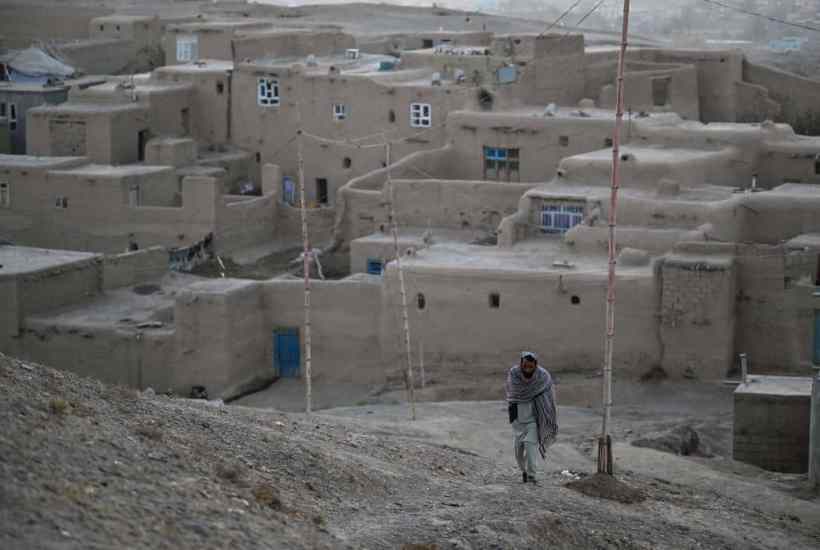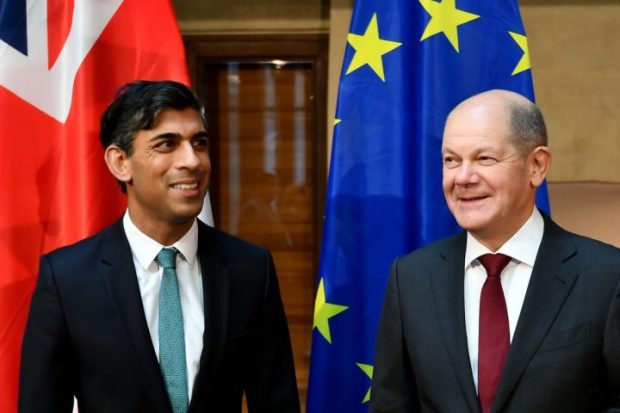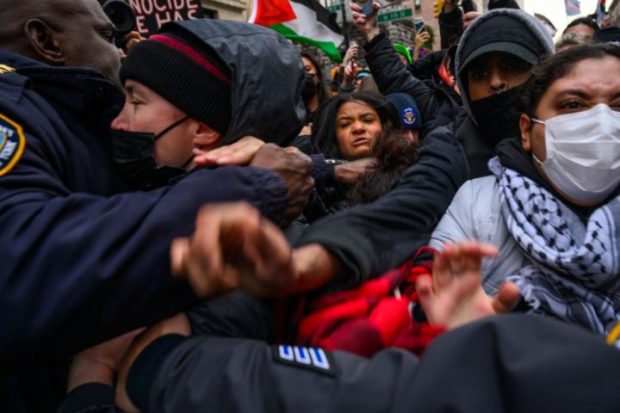The scale of the human tragedy unfolding in Afghanistan is hard to comprehend. The economy has collapsed, some 20 million people face death by starvation and international agencies like the World Food Programme have already doubled their estimate of what they will need just to keep people alive.
They are appealing now for a staggering $2.4 billion (£1.8 billion) to get food stocks into position and keep a pipeline of supplies into the country through the winter. There have been reports of parents selling their babies and there are scenes of daily humiliation as people pile up household goods in the street to try to sell for scraps of food. The banks have hardly any cash to circulate and the Taliban have added to an acute liquidity crisis by banning the use of foreign currency. In many parts of Afghanistan, Pakistani Rupees have been commonly used until now.
Faced by this looming catastrophe there have been appeals to the United States to make cash available. One relatively simple move would be to unfreeze the $9 billion in Afghan central bank assets currently locked in US accounts. Some, like the prominent anti-corruption campaigner with long ties to Afghanistan, Sarah Chayes, have naively argued that there should be conditions attached to any release of cash. But so far the Taliban have shown they have no interest in complying with any foreign demands, not least by side-lining leaders America thought it could do business with in favour of the hardline jihadists of the Haqqani network, who hold senior positions in the Afghan government even though they are on US wanted lists. These are not men who care about adhering to standards demanded by the US. Withholding cash to try to encourage the Taliban to behave better would be like ‘starving Afghan people in order to give them a better life,’ according to Vandana Felbab-Brown of the Brookings Institution.
But just handing over money beyond essential humanitarian aid does not feel like an attractive option either. The Taliban are an organised crime syndicate as much as they are a fundamentalist jihadi group. They sit at the centre of a web of business interests from heroin and gems to a more prosaic trade in coal, timber and talc – all enterprises run outside state control until now. Releasing the frozen central bank fund would reward organised crime for the takeover of a country, and may not even have the desired effect of stabilising the country. While it would be a one-off infusion, there would be the inevitable consequences of runaway inflation and a collapse in the value of the currency without a functioning connection to a working economy.
The truth is we have no good options and little leverage. I say ‘we’, but deep cuts in the aid budget and the earmarking of what is left for climate action mean that Britain has little to offer in this discussion. And since Joe Biden’s White House has abrogated leadership over Afghanistan, and indeed much else, leaving the western project adrift, there is little creative thinking coming from that side of the Atlantic.
But however much Biden may want to disengage, Afghanistan has a tendency to command attention. According to US intelligence estimates, Islamic State-Khorasan, the Afghan affiliate, could have the capability to launch international terrorist attacks in six months. To combat this some pragmatists have argued that the best option would be to recognise the Taliban and engage with it on its terms, as the best source of stability in Afghanistan against the brutal chaos of Islamic State, hoping to use recognition as a wedge to build a more inclusive government. But intelligence estimates also suggest that al Qaeda would have the capacity to mobilise itself to launch international attacks from Afghanistan within a year, under Taliban control, making engagement with the Taliban a somewhat less palatable option. It is a hard stretch to imagine the Taliban as a reliable counterterrorist ally.
And western powers are not the only players on the Afghan chessboard. While America participated in a formal meeting with China and Russia in Pakistan this week in order to keep regional dialogue intact, a far more important gathering was held in India between national security teams from India, Iran and Russia, along with Afghanistan’s Central Asian neighbours, the ‘stans’: Turkmenistan, Kyrgyzstan, Kyrgyzstan, Uzbekistan and Tajikistan.
This could mark the beginning of organised armed resistance to the Taliban. Iran and Russia were initially supportive of the Taliban takeover, but already appear to be experiencing a sort of ‘buyer’s remorse’. Neither is comfortable with the Haqqani network, and widespread Taliban clearances of minority Hazara Shia people from the central highland region have provoked Shia Iran.
India’s only overseas military base is an airfield in Tajikistan and it does appear to be at least lining up the pieces for potential future support to military opposition to the Taliban. It is the duty of western democracies to get behind this according to the French activist philosopher Bernard-Henry Levy, who urges us ‘to encourage, support, and, if necessary, arm…the Afghan resistance.’
This leaves Pakistan exposed as the Taliban’s sole backer. However much prime minister Imran Khan may play the victim as he did in the meeting with the US, China and Russia, claiming Pakistan bore the brunt of terrorist attacks and the burden of refugees, Pakistan is more responsible than any for the growth of terrorism in the region. The Haqqanis only emerged as the dominant faction in Kabul under a deal brokered by Pakistan’s intelligence chief. This is a government made in Islamabad. And while the rest of the world is still withholding recognition of the Taliban regime, Pakistan has given the ‘Islamic Emirate of Afghanistan’ de facto recognition with an exchange of ambassadors. To Pakistan this is an acceptance of reality, arguing that a policy of ‘wait and see’ would abandon the Afghan people. But the act rings hollow as at the same time Pakistan continues to sponsor terrorist groups aimed at destabilising India, while evidence has emerged that Pakistan is backing new hard-line groups in Afghanistan as insurance in case the Taliban should fail them. It is as if the sponsorship of jihad is the only policy tool available to the Islamabad government.
Exactly three months after the Taliban takeover in Kabul, their government remains unstable, riven by arguments between different factions, and the outside world is no nearer finding a solution, while the Afghan people face starvation.
Got something to add? Join the discussion and comment below.
Get 10 issues for just $10
Subscribe to The Spectator Australia today for the next 10 magazine issues, plus full online access, for just $10.




















Comments
Don't miss out
Join the conversation with other Spectator Australia readers. Subscribe to leave a comment.
SUBSCRIBEAlready a subscriber? Log in